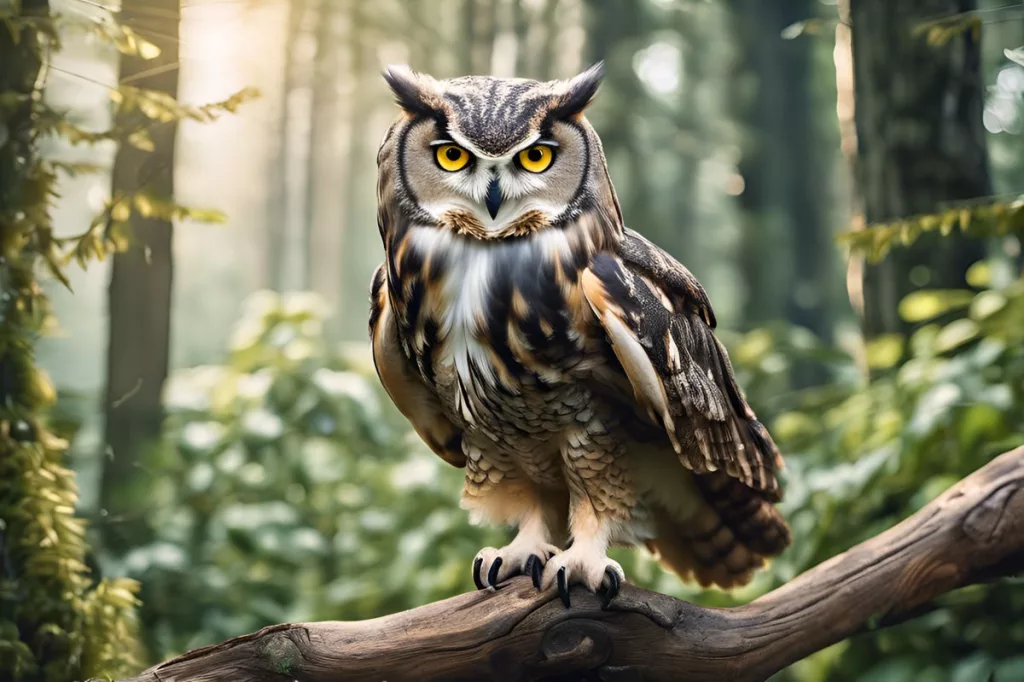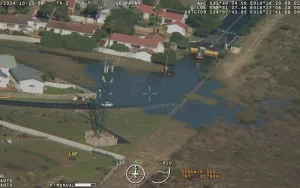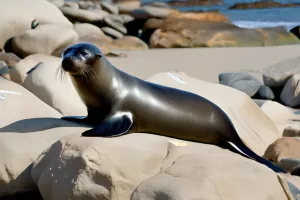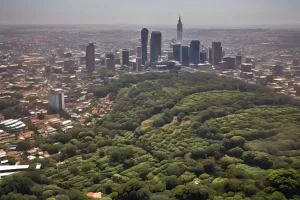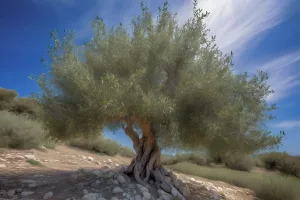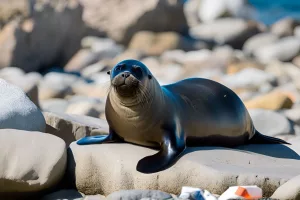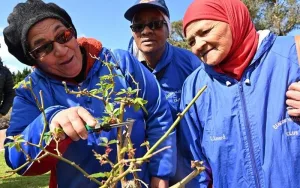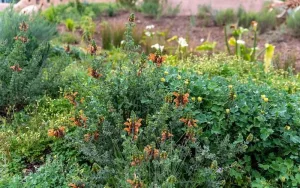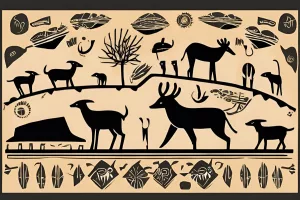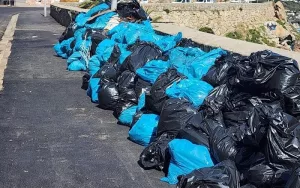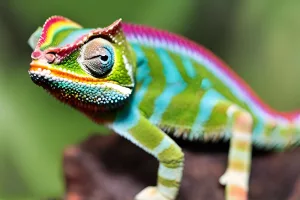The Owl Orphanage Rehabilitation Centre in Velddrif, started by Jacques Nel in 2018, is a special place for injured and orphaned wildlife, especially birds of prey like owls and sparrowhawks. Since opening, they have helped over 2,000 animals, giving many a second chance at life. Jacques and his small team work tirelessly, often at night, to rescue and rehabilitate these creatures, facing challenges like pollution and cruelty. The center also educates the community about protecting wildlife, hoping to inspire kindness and care for nature. In this sanctuary, each rescued animal is a shining beacon of hope for a brighter future.
Winter in Cape Town was tough in 20232024, with record rainfall and strong winds affecting over 167,000 people and damaging many homes. As the chill fades, the city’s Disaster Risk Management Centre stays alert, using new technology to help respond to future storms. Numerous organizations stepped up to provide aid, serving hot meals and distributing blankets to those in need. This challenging season taught Cape Town valuable lessons about community strength and the importance of being prepared for whatever nature throws its way. As the city looks ahead, its spirit of resilience shines bright, ready to face new challenges together.
Cape Town’s Annual BeachLowering Program is a special event that happens every year from October 1 to November 8. This initiative helps keep the beaches beautiful and safe by lowering sand levels, which stops sand from blowing onto roads and buildings. The program takes place at popular spots like Fish Hoek, Muizenberg, Gordon’s Bay, and Bikini Beach, ensuring there’s plenty of room for fun activities while protecting the environment. With this careful management, Cape Town’s coastlines stay vibrant and welcoming for everyone to enjoy!
World Rabies Day 2024, on September 28, is a vital reminder to protect our pets from the deadly rabies virus. The Cape of Good Hope SPCA warns that rabies is spreading among Cape Fur Seals, putting both animals and people at risk. They are offering free vaccinations to pet owners to help keep everyone safe. It’s essential for pets to get vaccinated on time, as this is the best way to stop rabies from spreading. Join the fight against this disease—vaccinate your pets and help spread the word!
A braai is a special South African barbecue that brings people together to enjoy good food and nature. In Cape Town, you can have a braai in beautiful spots like Oudekraal, Newlands Forest, Silvermine Nature Reserve, and Maiden’s Cove, each with stunning views. At Oudekraal, you can grill near the ocean, while Newlands Forest offers a quiet, shady spot among tall trees. Silvermine has a lovely reservoir where you can swim and cook, and Maiden’s Cove dazzles with breathtaking sunsets over the ocean. No matter where you choose, a braai in Cape Town is a joyful celebration of food, friends, and the great outdoors.
Johannesburg is a lively city where old meets new, creating a unique and colorful atmosphere. Known for its massive manmade forest filled with over 10 million trees, it offers green spaces that bring joy and calm to city life. With a skyline dotted with tall buildings, including Africa’s tallest, Johannesburg showcases its ambition and creativity, shaped by its rich gold mining history. The city buzzes with vibrant culture, delicious food, and a strong sports spirit, making it a fascinating place to explore and enjoy. As Johannesburg continues to grow, it remains a shining example of resilience and innovation in a bustling urban landscape.
South Africa is about to feel winter’s icy breath with light snow expected from September 29 to October 1, 2024, in its highaltitude areas. The Western Cape, Eastern Cape, and southern KwaZuluNatal will see cooler temperatures and strong winds, making travel tricky. As snowflakes dance down, locals are reminded of the beauty and challenge of nature’s wonders, transforming their landscapes into magical winter scenes. This chilly spell not only brings a touch of enchantment but also highlights the spirit and resilience of communities facing these wintry conditions together.
Arbor Month in Cape Town is a joyful celebration of trees and the environment, where the community comes together to plant beautiful indigenous trees like the Wild Olive. On September 25, 2024, city leaders planted two Wild Olives at the Bellville Municipal building, showing their commitment to a greener, healthier city. This event not only beautified the area but also strengthened community bonds and reminded everyone of the importance of caring for nature. With every tree planted, Cape Town invests in a brighter, more sustainable future for generations to come.
Rising cases of rabies in Cape Fur Seals in Cape Town are alarming beachgoers, with 24 confirmed cases since May 2024. Experts urge people to stay away from seals and report any unusual behavior. If bitten or scratched, it’s crucial to seek medical help immediately. Vaccinating pets is also very important to keep them safe. As World Rabies Day approaches, the city emphasizes the need for public awareness and safety when interacting with these coastal creatures.
Jack was a sad dog who suffered alone, chained up and covered in ticks. Rescued by the Cape of Good Hope SPCA, he received urgent surgery to remove a heavy chain and a painful growth on his neck. As he stepped into freedom for the first time, Jack showed the world his brave spirit and the power of kindness. His journey from pain to hope inspires us all to care for animals and fight against cruelty. Jack’s story reminds us that love and compassion can heal even the deepest wounds.
The Westridge Rose Garden hosted its firstever mini rose pruning workshop with 26 senior citizens in attendance, offering a lecture followed by practical pruning sessions. The Durbanville Rose Garden team provided their expertise, hinting at promising future alliances between the two green havens. The workshop was hailed as a success by the community, with participants finding it to be an empowering journey and an inspiration for their own gardens. The event marks the beginning of more communitycentric activities at Westridge Rose Garden.
The South African National Parks Week is a celebration of the special bond between South Africans and their natural environment, offering free access to various national parks for residents over the age of 18. This year’s theme, “Own Your National Parks,” calls for every individual to protect and preserve these parks for future generations. The event highlights the invaluable natural and cultural riches within South Africa, and promotes the innovative Kruger, KirstenboschiSimangaliso Icon Status Strategy (KISS) to transform national parks into globally recognized tourist destinations and economic anchors for the nation.
The Majik Forest Renosterveld Garden is a breathtaking sanctuary in Durbanville, Cape Town, showcasing the diversity of local indigenous wildflowers and symbolizing a united pledge to conserve our natural inheritance. The garden is a result of a collaborative effort between public sectors, community groups, and artists. It serves as an interactive stage for the public to learn about the iconic plant species of the Greater Tygerberg Hills and promotes the use of native species in conservation efforts. The garden is a harmonious narrative of coexistence between nature, art, and community collaboration, paying tribute to South Africa’s rich biodiversity and natural beauty.
South Africa’s prehistoric rock art offers a window into the past and showcases the rich legacy of indigenous cultures. The Cederberg Bushmans Kloof and Drakensberg regions provide immersive experiences through guided tours and workshops, with some artwork dating back over 10,000 years. The quaint village of Rhodes and Limpopo’s unique confluence of artistic traditions also offer fascinating insights into the region’s cultural history. South Africa’s rock art connects us to our collective human story, providing a living link to the past that we can actively participate in.
A team of 15 dedicated individuals from the Coastal Management Branch, Shark Spotters, and the Coastal Conservation team worked tirelessly for four days to clean up Bantry Bay’s rugged coastline. Despite facing challenging weather conditions and fluctuating tides, they managed to fill an impressive 2,356 municipal bags with rubbish. The success of this operation was a testament to the effective partnership between the different teams and highlights the importance of joint conservation efforts in protecting our planet’s natural heritage.
A Cape Dwarf Chameleon in South Africa faced a struggle for survival after being discovered with severe injuries. With the help of an expert veterinary team, the chameleon underwent meticulous surgery and intensive care, leading to a full recovery. This remarkable creature possesses unique survival skills, including the ability to alter its color in response to its thermal needs and a hunting strategy that involves using its tongue to capture prey. The chameleon’s journey highlights the importance of conservation efforts and the incredible resilience of nature.

